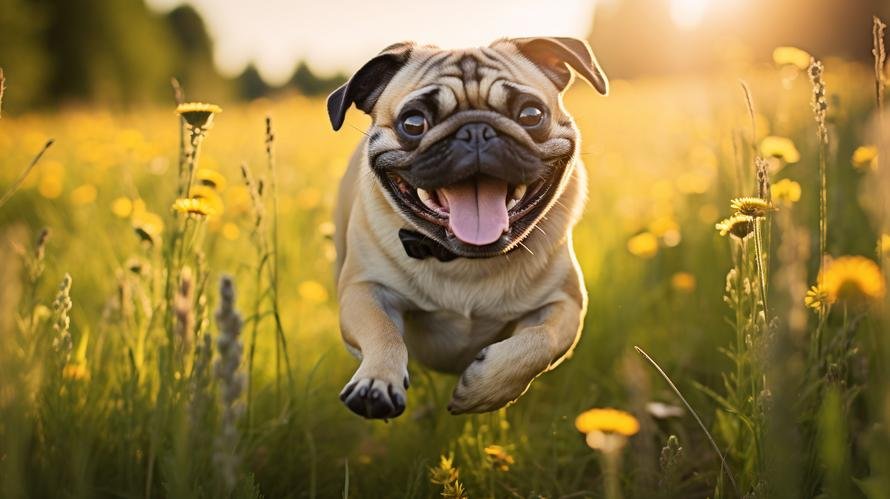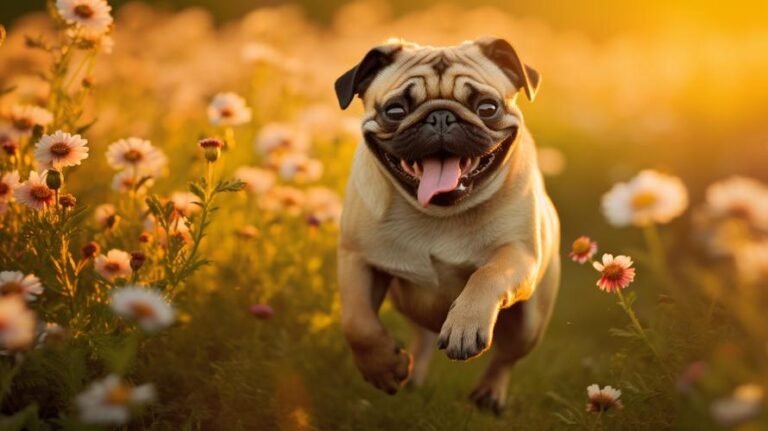You’ve probably heard of gluten-free diets for people, but grain-free diets for dogs? It sounds like another health-craze, right? But there might be something to it for our little Pug friends.
In recent years, food allergies in dogs have skyrocketed. While some veterinarians argue that dogs have always had them, most agree that we’re seeing many more food allergies in dogs than ever before. One breed that seems particularly susceptible? Pugs. These little guys are often plagued by all sorts of sensitivities, including those that relate to food.
So, what does all that have to do with grains – those common ingredients found in many commercial dog foods? Let’s dive in and explore this intriguing issue!
Firstly, let’s clearly understand what grains are. These are seeds from grasses. They include wheat, corn, rice, barley, oats and others. These seeds or grains are highly nutritious and packed with fiber, vitamins, and minerals. Regrettably, grains are high in starchy carbohydrates that can be challenging for dogs, including our Pugs, to digest.
Now, here’s something to chew on. Canine ancestors were carnivores, and dogs’ digestive systems haven’t evolved fully to efficiently digest certain grains. Some dog breeds may not have any issues with grains, but others like Pugs could indeed have difficulty.
Why are grains a possible hitch for Pugs? It’s primarily due to their anatomy. Originating from China, Pugs have been bred over centuries to have a certain look. That includes the short-muzzled face we all love. Although that squished-in face is adorable, it can lead to breathing and digestive issues. When a Pug eats dry dog food that is high in grains and other complex carbs, their sensitive digestive system could struggle to break it down adequately. This can lead to issues such as excessive flatulence, bloating, and even food allergies.
Symptoms of food allergy in Pugs can range from chronic ear infections, gastrointestinal problems like diarrhea and vomiting, chronic gas, skin rashes, itchiness, and constant licking or chewing of feet. If these symptoms sound familiar, your Pug might be allergic to something they’re eating. If you’ve been to your vet and ruled out other health issues, the food could be the culprit.
Now you might think, “Okay, grain-free diet is the solution then. Right?” Not so fast! It’s essential to understand that grain-free doesn’t always mean healthy or suitable.
Many grain-free diets replace those grains with ingredients like potatoes and peas that are still high in carbs but not as nutritionally diverse as whole grains. And, research from the Food and Drug Administration (FDA) suggests a link between grain-free dog diets and a heart condition called dilated cardiomyopathy (DCM). Still, more research is necessary to ascertain if it’s the absence of grains in the diet or the alternative ingredients that might be causing DCM.
So, what should a Pug parent do? Here are some useful pieces of advice:
1. Conduct Allergy Tests: The food allergy problem could only be solved by figuring out the culprit. There is a variety of allergy tests available that can help identify what’s causing the trouble.
2. Consult Your Vet: Never switch your Pug’s diet without your vet’s advice. They are the best person to decide what diet is best for your Pug based on their overall health, age, weight, and other factors.
3. Cut grains slowly: Do not suddenly remove all grains from your Pug’s diet. Start by cutting one grain at a time and observe if the symptoms improve.
4. Look for Quality Dog Food: If your Pug has a grain allergy, search for quality grain-free products that have meat as their first ingredient and don’t substitute grains for cheap fillers.
5. Balance is the Key: The healthiest diet for any dog, including pugs, is a balanced one. The diet should include proteins, carbohydrates, and fats. So, Grain-free diets should also include other sources of carbohydrates and fibers.
In conclusion, should Pugs eat grain-free? There’s a strong possibility that some Pugs might fare better on a grain-free diet if they have a proven grain allergy or sensitivity, but it’s not a blanket rule for all Pugs. Always talk to your vet before making such a significant change to your Pug’s diet.
Remember, every Pug is unique, and what works for one may not work for the other. The goal is to keep our Pugs healthy, happy, and ready to give us their famous Pug kisses!



